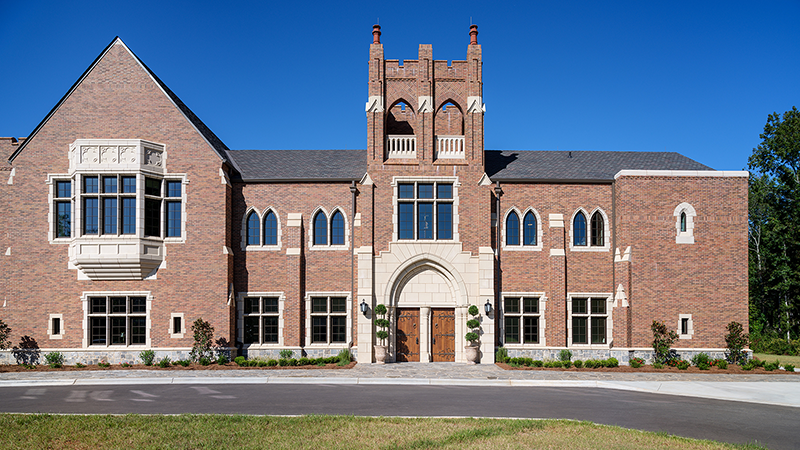 MOUNT HOLLY — Construction of a new chapel that will accommodate more visitors at St. Joseph College Seminary is expected to begin this spring – bringing to fruition a long-planned “home of the Lord” with new financial features built into the $24 million project.
MOUNT HOLLY — Construction of a new chapel that will accommodate more visitors at St. Joseph College Seminary is expected to begin this spring – bringing to fruition a long-planned “home of the Lord” with new financial features built into the $24 million project.
Working in collaboration with Bishop Michael Martin, seminary and diocesan leaders have adopted a plan that not only includes a new chapel with seating for 150 people, but also will pay off existing seminary construction debt and set aside funding for an endowment to pay for long-term capital needs.
“It’s great news to be moving forward with a chapel that will enhance the prayer lives of our seminarians and accommodate triple the number of visitors we can welcome in our chapel now,” said Father Matthew Kauth, seminary rector. “We made some changes in the project to layer in new financial components and to focus our building exclusively on the chapel – which really is the heart of the project.”
St. Joseph College Seminary opened in 2020 in Mount Holly and currently houses 21 men – with room for more – who are discerning a call to the priesthood in the Diocese of Charlotte while earning their undergraduate degree at nearby Belmont Abbey College.
Its current chapel seats about 50 and was originally designed as a lecture and dining hall.
The college seminary celebrated a groundbreaking for the chapel last May but soon put things on hold so the diocese’s new bishop could review the project and learn about the seminary program. Working together, seminary and diocesan leaders made changes to the project to layer in the financial components.
The project now includes $20.7 million for the chapel and related sitework and furnishings, $2 million for the endowment and $1.7 million for debt elimination. The funding comes from generous donors who gave to the seminary’s capital campaign.
“This project is a testament to the success of the diocese’s thriving vocations program,” said Emmett Sapp, director of construction and real estate for the diocese. “A stand-alone chapel was always envisioned to be part of the seminary campus, and the changes we made to eliminate debt and create an endowment will only enhance the long-term sustainability of the buildings.”
The college seminary helps train priests who will go out to the parishes and minister to the diocese’s growing population. Entering its 10th year, the seminary has graduated eight men who have been ordained priests, with five more anticipated to graduate this year. They will go on to study at major seminaries in Ohio and Rome, then return to the diocese to serve as priests.
The new chapel will be an integral part of the seminarians’ formation process, Father Kauth said. He and diocesan leaders are now meeting with architects to finalize plans and will soon be seeking new building permits.
Construction is expected to take at least 18 months.
“The chapel on any campus is, of course, the home of the Lord,” said Father Kauth. “It’s a place for Catholics from around the diocese and beyond to come for renewal and reflection. We want the seminary to be a place that welcomes people and renews their hope.”
— Liz Chandler and Christina Lee Knauss


